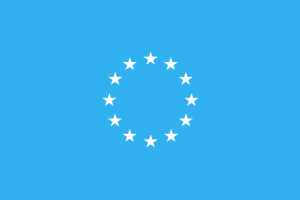Ecommerce websites in Europe hit by GDPR

Ever since the European Union’s General Data Protection Regulation, or GDPR, came into force 14 months ago, ecommerce websites in Europe have recorded lower page views, site visits and revenue.
The General Data Protection Regulation was adopted on 14 April 2016, and became enforceable beginning 25 May 2018. It’s a regulation on data protection and privacy, designed to protect citizens of the European Union.
Revenue decreased by 8.3% due to GDPR
But since the regulation came into force, page views fell by 9.7 percent, while website visits decreased by 9.9 percent, a study called ‘Regulating Privacy Online: The Early Impact of GDPR on European Web Traffic and E-commerce’ shows. For ecommerce websites in Europe the results are less damaging: recorded site visits fell 5.6 percent, while recorded revenue decreased by 8.3 percent.
Impact of GDPR on page views, site visit and revenue
The researchers used data from Adobe Analytics to quantify the impact of GDPR on important economic outcomes for a diverse set of firms. According to them, it’s one of the first of its kind to study the GDPR, whose scale and scope has cost many companies millions of euros in compliance costs.
Email and online display advertising affected by GDPR
One of the possible reasons that ecommerce websites in Europe have seen a decline in traffic and revenue is because the GDPR increased the risk that comes with email and online display advertising. “The higher costs of using personal information can affect personalized marketing channels that drive online traffic”, the researchers write in the pdf. “Both email and online display advertising rely on personal data in the form of cookies or the email lists. As such, the quality and quantity of advertising through these channels may fall.”
The researchers point to other studies that suggests that email and display ads precede 7 and 3 percent respectively of visits to ecommerce websites, and that the previous EU privacy legislation reduced ad effectiveness by 65 percent.
Users become aware of how information is used
The academics also note that overall website traffic may change, because users become aware of how their information is used. “GDPR enforcement brought ubiquitous privacy notices on websites that serve EU users. By increasing the salience of privacy concerns, these notices may have changed user preferences for how much time users spend online and which sites they frequent.

Comments